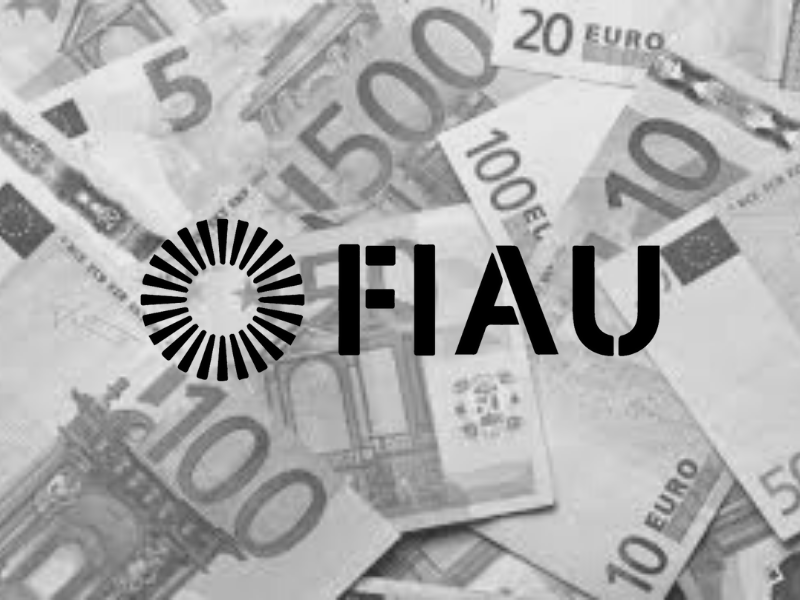Weeks before a crucial and possible devastating decision which could cost thousands of jobs in Malta, as well as impact the future of Malta’s lucrative financial services industry, Malta’s anti-money laundering watchdog, is in a race against time, firing off accusations of infringements and administrative penalties in an attempt to impress the Council of Europe’s adjudicators.
After years of inaction and ‘looking the other way’ when it came to serious money laundering allegations, including by Politically Exposed Persons at the helm of the Labour government, the Financial Intelligence Analyses Unit (FIAU) has suddenly increased its activities, delivering record decisions and the imposition of unprecedented fines during the past few months.
A recent review conducted by The Shift on penalties published by the FIAU shows that despite its existence since 2002, the FIAU has spent years in almost complete hibernation, with actions taken on very few occasions.
Until last year’s Moneyval’s threat, giving the island 12 months to act against money laundering if it wanted to avoid being greylisted – risking thousands of jobs and a substantial part of Malta’s economy – the highest fine ever imposed by the FIAU stood at just €57,500 against Bank of Valletta in 2018, according to an analysis of the fines over the years conducted by The Shift.
Yet last week alone, with the Moneyval decision expected next month, the FIAU issued public notices announcing the imposition of almost €2 million in fines against two companies operating in remote gaming and investment services.
Research by The Shift shows that between 2015 and 2019 – a five year period in which the financial services industry was booming – the FIAU issued 10 enforcement actions, with total fines of only €273,000.
In 2019, there were no fines issued. Yet this year, in the months following the Moneyval warning, 18 enforcement decisions have been issued with total fines already reaching €2.5 million.
Financial services industry sources told The Shift that while this may also be a result of increased resources at the FIAU, “It is obviously also a PR exercise to impress Moneyval that things are moving”.
Despite steep fines being issued, in one instance reaching a staggering €1.2 million, the money from fines will not necessarily end up in the State’s coffers as most of these decisions are being challenged in court. Moreover, if companies cannot pay such astronomical fines they can simply declare bankruptcy and the fines will not be paid, financial industry sources told The Shift.
The lack of action by the FIAU has been under scrutiny for years, as a result of claims of wrongdoing by companies not followed by enforcement or the shelving of possible prosecution against top people in the Labour government.
Leaked FIAU reports following the Panama Papers exposé showed that the agency had concluded that there was reasonable suspicion of money laundering activities conducted by Keith Schembri, the chief of staff of former disgraced Prime Minister Joseph Muscat, Brian Tonna and Karl Cini of Nexia BT, and Adrian Hillman, former managing director of The Times of Malta.
Despite these reports being passed onto the police to begin criminal action, nothing was done and the police did not act.
Additionally, the FIAU failed to deliver results on major money laundering banking scandals, including the Pilatus Bank and Satabank sagas, described at the time by the Opposition as money laundering machines. The FIAU, the MFSA and the police were accused of ‘sleeping’ on these files.
Things came to a head last year when Malta failed an expert review of its money laundering regime, as Moneyval declared that law enforcement authorities were put in a position where they could not effectively carry out their jobs.
The review also found regular shortcomings in relation to monitoring and action against financial, bribery and corruption offences.
Malta was given until next month to address the concerns raised or face possible greylisting.













To start off with, Malta deserves a black listing and not a grey listing.
The duration of this black listing, should be until, criminal action is started immediately, and concluded within a maximun of a year, against Joseph Muscat and Michelle Muscat, Keith Schembri and possibly his spouse, Konrad Mizzi and possibly Sai Mizzi, Chris Cardona, Neville Gafa’, Brian Tonna, Karl Cini, Manuel Castagna, Edward Scicluna, Lawrence Cutajar, and other cabinet members/politically exposed persons/persons with positions of trust.
Also, not before the public and the European Commission is presented with a detailed list of beneficiaries under the IIP Scheme, and given time to investigate and report upon suspicious beneficiaries. In the meantime, the scheme should be abolished.
Also, not before the Electrogas/Vitals/Steward Healthcare agreements are published in their entirety and possibly nullified.
This done, Malta’s rating should be revised from black to grey for another defined period.